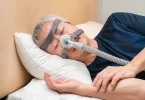Just like the body changes greatly in the early stages of life, it also undergoes many changes in life’s latter stages. By understanding which changes come naturally with aging and which ones don’t, you’re able to help reduce and slow their development and progress while discovering and dealing with any physical issues that may appear to have some other, unrelated cause.
1. Your heart has to work harder
Your arteries and blood vessels stiffen, forcing your heart to work more to pump blood. As a result, you can develop heart problems like high blood pressure.
To help combat this, keep active. Run, swim or just walk, if that’s all you can do. Even just a bit of exercise every day can help keep your blood pressure down. In addition, eat a good amount of whole grains, fruits and vegetables. Keep your stress under control. Getting sufficient, regular sleep — seven to eight hours — each night can help your heart and blood vessels to repair and heal.
2. Your skin changes
Your skin produces less natural oil and, therefore, gets less supple and feels drier than back in the day. You can find help with this by using dry skin and thinning hair treatments to supplement and replace those natural oils.
You also sweat less and lose some of the subcutaneous fatty tissue (or that which is below the skin.) This can make your skin seem thinner, too.
In addition, you could notice age spots, skin tags (or small skin growths) and wrinkles. Check your skin frequently, and notify your doctor right away if you see any changes like moles. Smoking can also cause wrinkles, so this gives you another reason to stop if you still do.
To combat this, bathe and shower in warm rather than hot water, as hot water dries out the skin. When you go outdoors, be sure to wear protective clothing and sunscreen.
3. Several of your senses decrease
Your vision could decrease. You may have more difficulty focusing on nearby objects, including text, requiring you to wear reading glasses. You may also find it difficult to adjust to quick changes in lighting and possibly see more glare.
Your hearing, as well, could weaken. You may find difficulty keeping up with conversations in a busy or crowded space, or you may have trouble hearing certain (usually high) frequencies.
To combat this, regularly get your hearing and vision checked. When you go outdoors, protect your eyes with sunglasses. When you’re around loud noises, wear earplugs.
4. Your teeth and gums are different
You could discover your gums looking as though they’re pulling away from your teeth.
Some of the medications you may need to start taking as you age could cause your mouth to feel drier. This, in turn, could increase your risk of gum infections and tooth decay.
The best way to combat this and help prevent tooth loss and gum disease is to brush your teeth twice and floss at least once every day to remove food and plaque between your teeth. It’s also important to keep up with your regular dental cleanings and checkups.
5. Your bones get more brittle and your joints stiffen
Your bones will start to weaken, becoming more brittle and less dense. As a result, your risk of fracture increases. Your spinal disks may shrink, causing you to appear as if you’re getting shorter.
In addition, cartilage and fluid surrounding the joint can wear and decrease over time, causing your joints to feel stiffer. Some even develop arthritis from joint tissue breaking down.
To combat brittle bones and stiff joints, ensure you get sufficient vitamin D and calcium every day. Vitamin D helps the body absorb calcium.
Good dietary sources of calcium include almonds, dairy products and vegetables like kale and broccoli; good dietary sources of vitamin D include egg yolks, sardines, tuna and fortified foods like milk and cereals.
6. You have less control over your bladder and bowels
Your bladder could feel weaker and harder to control. Urinary incontinence in seniors doesn’t happen to everyone, but it happens to approximately 10% of those 65 years old or older.
Your bowel movements may not be as regular as they used to be either. This could be due to a medical condition like diabetes or certain medications that cause constipation as a common side effect, like treatments for depression, Parkinson’s disease, seizures and blood pressure. Other common sources of constipation in the aging population include narcotic pain and iron supplements.
7. Your sex life alters
If you’re a woman, your vaginal tissues lose elasticity and become thinner and drier. This could decrease the pleasures of having sex. Your breasts may appear smaller and not as full as your breasts lose fat and tissue.
If you’re a man, you may find it more difficult to achieve or maintain an erection. Note, this can be the result of other causes besides or in addition to aging, such as other health issues or the side effects of medical treatment.
You can help keep tabs on these changes with at-home hormone testing. If you find cause for concern, you can then contact your doctor to discuss possible treatments.
8. Your happiness increases
If this list is marked by one consistency, it’s that all these changes are undesirable. But, here is the one exception, and it’s a biggie. A study on aging found that, as people aged, their self-perception of happiness increased. Researchers linked this to an increase in resilience as a person ages.
9. You catch less colds
OK, there’s actually at least one more positive bodily change associated with aging, and it’s increased immunity to common viral infections. This, of course, is due to a lifetime of exposure to a wide array of viruses.
Aging Is Unavoidable: Symptoms of Aging Are Not
You may not be able to prevent getting older, but you could reduce or slow the development and progress of many, if not most, of the signs and symptoms of aging. Take control of your health now with the goal of having a healthier life.








